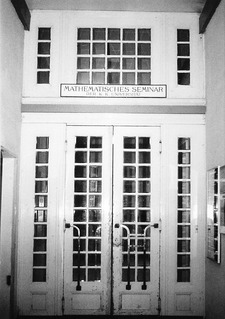 W
WThe Vienna Circle of Logical Empiricism was a group of philosophers and scientists drawn from the natural and social sciences, logic and mathematics who met regularly from 1924 to 1936 at the University of Vienna, chaired by Moritz Schlick.
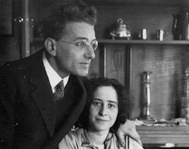 W
WGünther Anders was a German philosopher, journalist, essayist and poet.
 W
WMartin Balluch is an Austrian physicist, philosopher, vegan and prominent animal rights activist. He co-founded the Austrian Vegan Society in 1999, and has been president of the Austrian Association Against Animal Factories since 2002. The philosopher Peter Singer has called Balluch "one of the foremost spokesmen in the worldwide animal rights movement for pursuing the nonviolent, democratic road to reform."
 W
WOtto Bauer was an Austrian Social Democrat who is considered one of the leading thinkers of the left-socialist Austro-Marxist grouping. He was also an early inspiration for both the New Left movement and Eurocommunism in their attempt to find a "Third way" to democratic socialism.
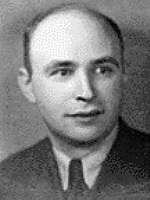 W
WGustav Bergmann was an Austrian-born American philosopher. He studied at the University of Vienna and was a member of the Vienna Circle. Bergmann was influenced by the philosophers Moritz Schlick, Friedrich Waismann, and Rudolf Carnap who were members of the Circle. In the United States, he was a professor of philosophy and psychology at the University of Iowa.
 W
WNathan Birnbaum was an Austrian writer and journalist, Jewish thinker and nationalist.
 W
WFranz Clemens Honoratus Hermann Josef Brentano was an influential German philosopher, psychologist, and Catholic priest whose work strongly influenced not only students Edmund Husserl, Sigmund Freud, Tomáš Masaryk, Rudolf Steiner, Alexius Meinong, Carl Stumpf, Anton Marty, Kazimierz Twardowski, and Christian von Ehrenfels, but many others whose work would follow and make use of his original ideas and concepts.
 W
WRichard Nikolaus Eijiro, Count of Coudenhove-Kalergi was an Austrian-Japanese politician, philosopher and Count of Coudenhove-Kalergi. A pioneer of European integration, he served as the founding president of the Paneuropean Union for 49 years. His parents were Heinrich von Coudenhove-Kalergi, an Austro-Hungarian diplomat, and Mitsuko Aoyama, the daughter of an oil merchant, antiques-dealer and major landowner in Tokyo. His childhood name in Japan was Aoyama Eijiro. He became a Czechoslovak citizen in 1919 and then took French nationality from 1939 until his death.
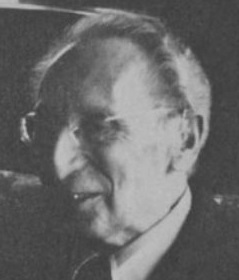 W
WHerbert Feigl was an Austrian philosopher and an early member of the Vienna Circle. He coined the term "nomological danglers".
 W
WEgon Friedell was a prominent Austrian cultural historian, playwright, actor and Kabarett performer, journalist and theatre critic. Friedell has been described as a polymath. Before 1916, he was also known by his pen name Egon Friedländer.
 W
WKurt Friedrich Gödel was a logician, mathematician, and analytic philosopher. Considered along with Aristotle and Gottlob Frege to be one of the most significant logicians in history, Gödel had an immense effect upon scientific and philosophical thinking in the 20th century, a time when others such as Bertrand Russell, Alfred North Whitehead, and David Hilbert were analyzing the use of logic and set theory to understand the foundations of mathematics pioneered by Georg Cantor.
 W
WTheodor Gomperz, Austrian philosopher and classical scholar, was born at Brno (Brünn).
 W
WAnton Günther was an Austrian Roman Catholic philosopher whose work was condemned by the church as heretical tritheism. His work has been described as Liberal Catholicism and Vienna's first Catholic political movement.
 W
WFriedrich August von Hayek, often referred to by his initials F. A. Hayek, was an Austrian-British economist and philosopher who is best known for his defence of classical liberalism. Hayek shared the 1974 Nobel Memorial Prize in Economic Sciences with Gunnar Myrdal for his "pioneering work in the theory of money and economic fluctuations and [...] penetrating analysis of the interdependence of economic, social and institutional phenomena". His account of how changing prices communicate information that helps individuals co-ordinate their plans is widely regarded as an important achievement in economics, leading to his Nobel Prize.
 W
WRudolf Maria Holzapfel was a Poland-born Austrian psychologist, philosopher. He was nominated for the Nobel Prize in Literature six times.
 W
WEdmund Gustav Albrecht Husserl was a German philosopher who established the school of phenomenology. In his early work, he elaborated critiques of historicism and of psychologism in logic based on analyses of intentionality. In his mature work, he sought to develop a systematic foundational science based on the so-called phenomenological reduction. Arguing that transcendental consciousness sets the limits of all possible knowledge, Husserl redefined phenomenology as a transcendental-idealist philosophy. Husserl's thought profoundly influenced 20th-century philosophy, and he remains a notable figure in contemporary philosophy and beyond.
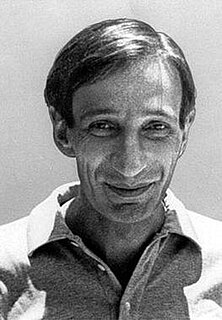 W
WIvan Dominic Illich was a Roman Catholic priest, theologian, philosopher, and social critic. His 1971 book Deschooling Society criticises modern society's institutional approach to education, an approach that allegedly constrains learning to narrow situations in a fairly short period of the human lifespan. His 1975 book Medical Nemesis, importing to the sociology of medicine the concept of medical harm, alleges that industrialised society widely impairs quality of life by overmedicalising life, pathologizing normal conditions, creating false dependency, and limiting other solutions more healthful. Illich called himself "an errant pilgrim."
 W
WAlfred Kolleritsch was an Austrian journalist, poet and philosopher.
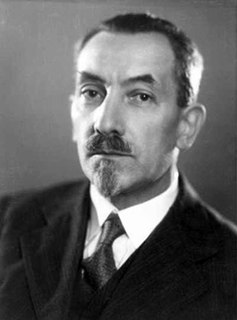 W
WVictor Kraft was an Austrian philosopher, best known for being a member of the Vienna Circle.
 W
WStella Kramrisch was a pioneering art historian and curator who was the leading specialist on Indian art for most of the 20th century. Her scholarship remains a benchmark to this day. She researched and taught Indian art history for more than six decades on three continents. After writing her dissertation on the essence of early-buddhist sculpture in India, she was invited to teach at Kala Bhavana in Shantiniketan (1922–24) and went on to teach at Calcutta University from 1924–1950. In Europe, Kramrisch worked at the Courtauld Institute, London (1937–1940). From 1950, she was professor at the University of Pennsylvania in the Department of South Asia Regional Studies, where she had been recruited by W. Norman Brown, in addition to being a prominent curator at the Philadelphia Museum of Art.
 W
WErik Maria Ritter von Kuehnelt-Leddihn, was an Austrian political scientist and journalist. He opposed the French Revolution as well as communism and Nazism. Describing himself as a "conservative arch-liberal" or "extreme liberal", Kuehnelt-Leddihn often argued that majority rule in democracies is a threat to individual liberties, and declared himself a monarchist and an enemy of all forms of totalitarianism, although he also supported what he defined as "non-democratic republics," such as Switzerland and the early United States.
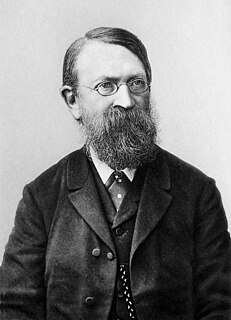 W
WErnst Waldfried Josef Wenzel Mach was an Austrian physicist and philosopher, noted for his contributions to physics such as the study of shock waves. The ratio of one's speed to that of sound is named the Mach number in his honour. As a philosopher of science, he was a major influence on logical positivism and American pragmatism. Through his criticism of Newton's theories of space and time, he foreshadowed Einstein's theory of relativity.
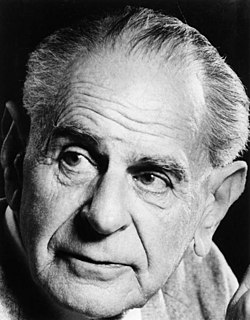 W
WSir Karl Raimund Popper was an Austrian-British philosopher, academic and social commentator.
 W
WRose Rand was an Austrian-American logician and philosopher. She was a member of the Vienna Circle.
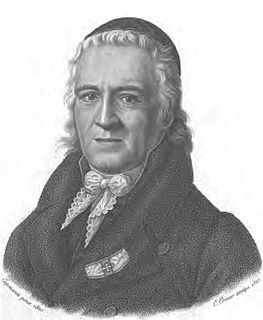 W
WKarl Leonhard Reinhold was an Austrian philosopher who helped to popularise the work of Immanuel Kant in the late 18th century. His "elementary philosophy" (Elementarphilosophie) also influenced German idealism, notably Johann Gottlieb Fichte, as a critical system grounded in a fundamental first principle.
 W
WJosef Schächter was an Austrian rabbi, philosopher and member of the Vienna Circle from 1925 to 1936.
 W
WViktor Schauberger was an Austrian forest caretaker, naturalist, pseudoscientist, philosopher, inventor and biomimicry experimenter.
 W
WAlfred Schutz was an Austrian philosopher and social phenomenologist whose work bridged sociological and phenomenological traditions. Schutz is gradually being recognized as one of the 20th century's leading philosophers of social science. He related Edmund Husserl's work to the social sciences, and influenced Max Weber's legacy of philosophical foundations for sociology and economics through Schutz's major work, Phenomenology of the Social World.
 W
WWalter Johannes Stein was an Austrian philosopher, Waldorf school teacher, Grail researcher, and one of the pioneers of anthroposophy.
 W
WAdam Tanner was an Austrian Jesuit theologian.
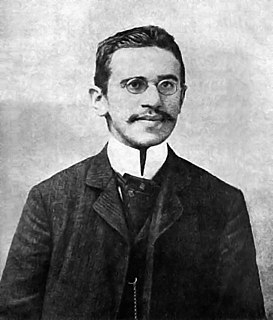 W
WOtto Weininger was an Austrian thinker who lived in the Austro-Hungarian Empire. In 1903, he published the book Geschlecht und Charakter, which gained popularity after his suicide at the age of 23. Parts of his work were adapted for use by the Nazi regime. Weininger was a large influence on Ludwig Wittgenstein, August Strindberg, and, via his lesser-known work Über die letzten Dinge, on James Joyce.
 W
WFelix Weltsch, was a German-speaking Jewish librarian, philosopher, author, editor, publisher and journalist. A close friend of Max Brod, Ludwig Winder and Franz Kafka, he was one of the most important Zionists in Bohemia.
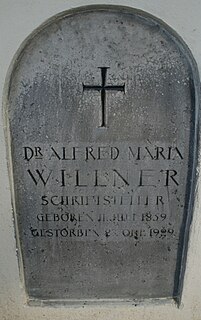 W
WAlfred Maria Willner was an Austrian writer, philosopher, musicologist, composer and librettist.
 W
WLudwig Josef Johann Wittgenstein was an Austrian-British philosopher who worked primarily in logic, the philosophy of mathematics, the philosophy of mind, and the philosophy of language.
 W
WFranz Manfred Wuketits was an Austrian biologist, university teacher and epistemologist. He wrote extensively on epistemology, the history and theory of biology, evolution theory, evolutionary ethics, evolutionary epistemology and sociobiology.